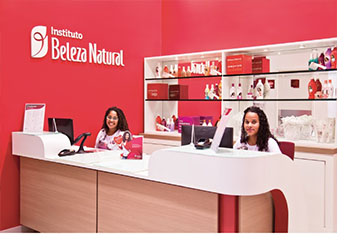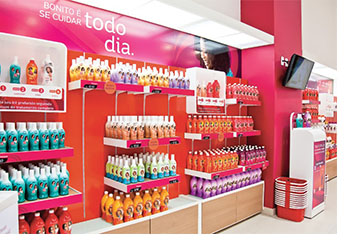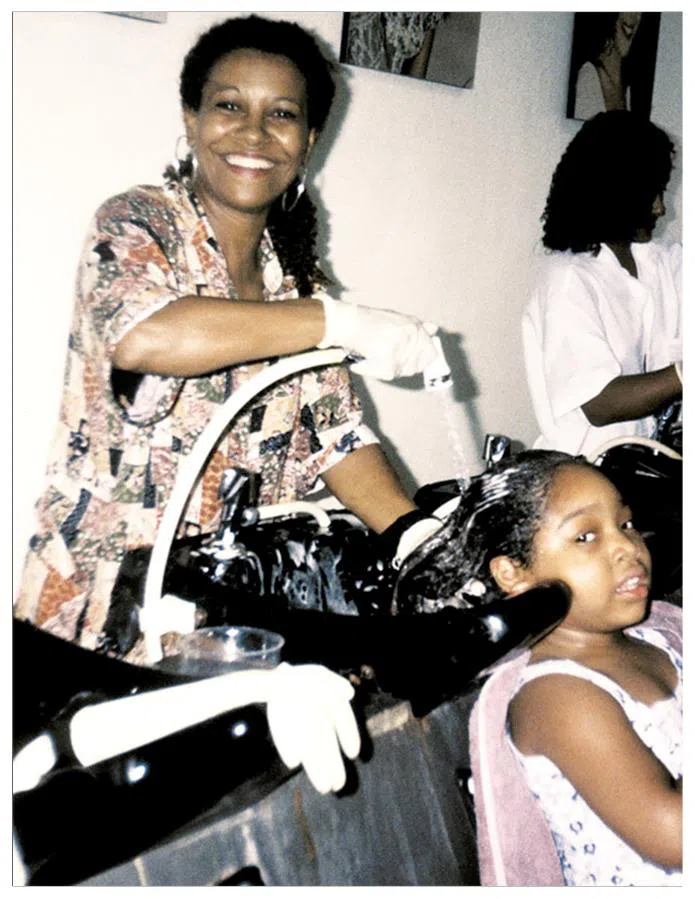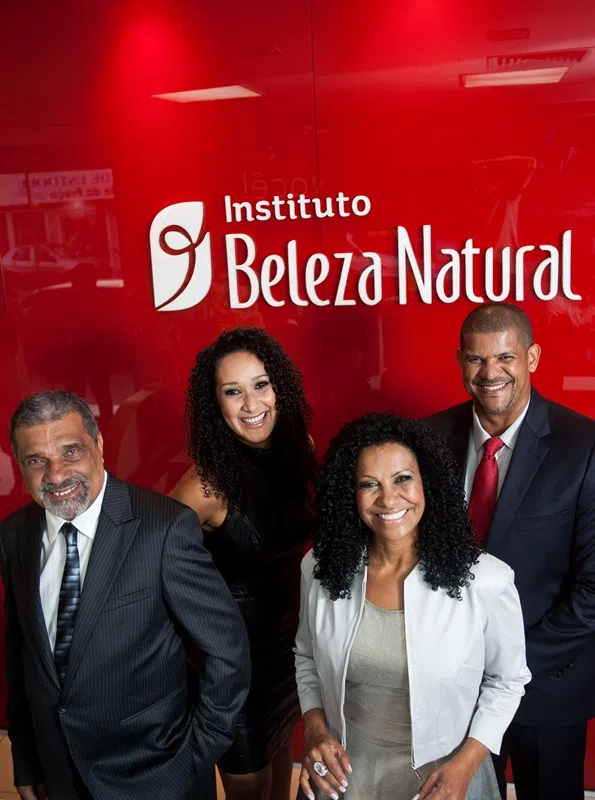Beleza natural has placed itself at the center of the movement creating an emerging Brazilian middle class. Its team has helped shift national standards of beauty that grant women — especially dark-skinned Brazilians — an empowering image of self-acceptance and pride.
In 2006, Taís Araújo became the first Brazilian actress to appear on television with curly hair. In pictures prior to the era of Viver a Vida, the soap opera in which she broke with the paradigm, Araújo’s hair is styled in different ways but almost always straight, as the norm dictated.
Then came Araújo’s curls – one could almost say the attitude of her curls. “I am absolutely sure we had some influence on the depiction of that character,” says Leila Velez, CEO of Beleza Natural, a chain of beauty salons launched in Rio de Janeiro in the mid-1990s that now operates more than a dozen branches in Brazil. (The company’s name roughly translates to “natural beauty.”)
Indeed, before filming the series, Araújo visited one of Beleza Natural’s branches. “Wow, this is so beautiful,” she said, referring to the salon’s approach to reinventing curls. “Later,” Velez says, “I heard that this character [who Araújo played in Viver a Vida] had a look that was absolutely like Beleza Natural.”
Outside Brazil it is difficult to appreciate the revolution that Araújo signaled. In a country where 70 percent of the population has curly hair, to show it off was a kind of taboo, both on and off TV. Beleza Natural, with its signature hair-relaxing product and unique hair salons, has adjusted models of beauty to the country’s demographic reality. The cultural changes that occurred simultaneously with Beleza Natural’s rise represents social ascendency for Brazil’s growing middle class. Beleza Natural provides an image with which middle-class women can proudly identify, especially dark-skinned and black women.
Beleza Natural’s spectacular growth since its humble beginnings in 1993 is the stuff of legend. Unbelievably, in Brazil the only products for curly hair were meant to straighten it until Velez’s sister-in-law, Heloisa Assis (known as Zica), began experimenting with raw materials from the cosmetics industry. A woman born in a favela, or working-class neighborhood, Zica patented a promising formula with the name Super-Relaxante.
Beleza Natural has never received credit from any bank, and the product’s fame spread by word of mouth. In order to finance the opening of a hair salon in which to showcase the product, Zica’s husband sold his taxi to support their three children. Zica’s brother-in-law, Rogério, and sister-in-law, Leila — who had met as McDonald’s employees — added their savings. Nearly 20 years later, Beleza Natural’s salons serve 80,000 clients a month, and its own factory produces 250 tons of Super-Relaxante and other hair-care products. Over the next seven years, the firm plans to open 120 salons in Brazil.

Beyond its curly hair product, which relaxes and lets natural curls fall, Beleza Natural developed a radically new design in hair salons, with a kind of assembly line featuring a series of specialized stations that replicates the McDonald’s model.
Leila and Rogério wanted to do with hairdressing salons what fast food had done to restaurants: reconstruct them from scratch, standardize all the production aspects, achieve consistent quality and drastically reduce prices for the consumer. Beleza Natural’s client passes through seven stations as if on an assembly line, each one attended by a specialist. She begins with an interview then proceeds into a waiting room where reading matter supports specific interests – on how to have a successful job interview or the best way to educate an adolescent, for example. “We have huge queues,” Velez says with a smile.
The customer then passes to the Super-Relaxante treatment, to the moisturizing phase, and to the cut, where each client chooses from one of 30 styles that Beleza Natural has designed for curly hair, based on the geometric criteria of different face types.
“We created a product that was really different and a service that can provide high quality in a very beautiful environment, at affordable prices,” Velez says. With prices reduced to a quarter of what competitors charge, Beleza Natural has made curly hair accessible to low-income women.

“It is more than just the hair, especially in Brazil,” Velez says. “When I talk about curly hair, it also has a social connection. There are a lot of preconceived ideas about curly hair, as something ugly, unwanted, related to people who don’t care about their looks. We transform the hair into something clients are proud of.” Beleza Natural puts hair control in its clients’ hands. “Hair is identity,” she says. “Hair has a flair, hair has a power over people that is strong and amazing in Brazil.”
Beleza Natural began to thrive as the Brazilian middle class grew. “From 1994, the emerging middle class, our main target consumer, had the first opportunity to reach a new level of consumption,” Velez says. “And they became proud. Now they have the power to buy things, to influence politics, to influence the country, to show who they really are. Hair is a part of that.”

Beyond bringing clients self-esteem, the treatment is like a monthly vacation in a life dedicated to work. “Sometimes coming to Beleza Natural is their only indulgence,” Velez says. In a beauty salon, the service roles are momentarily reversed and clients receive an unhurried, respectful, egalitarian and familiar treatment — 70% of employees are former clients. In their monthly visit, clients are trained, in the same way that staff are, about the delicate and singular way of brushing, washing and drying their hair and how to apply products.
Beleza Natural has also transformed itself as a business, particularly in the past five years. During 2010 Velez participated in Columbia University’s ECLA program. The team carefully examined each of the company’s branches, observing all kinds of success indicators, such as client satisfaction, profitability, productivity and financial effectiveness. With such knowledge, they completely redesigned the business model.
“After ECLA, it’s a new Beleza Natural. We were at the beginning of our expansion plan, and we wanted to multiply only the best practices. The result is a brand new concept, a lot better, a lot more profitable and faster to expand,” Velez says.
Part of the program involved studying the flux of customer flow. “We created a new system to avoid bottlenecks and have the best possible productivity.” In 2013, Beleza Natural opened the first branch based on the redesign. “It’s a store with a very different structure that costs three times less,” Velez says.
“We represent the new Brazil,” she summarizes. Her extraordinary drive rests on this identification. The national expansion plan includes multiplying the number of existing salons by 10 by 2022. Then, says Velez, Beleza Natural may enter Africa or the United States.
